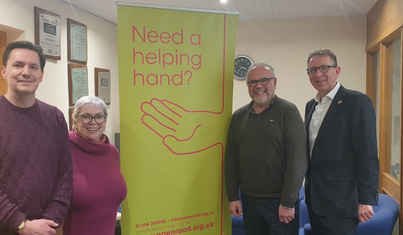The Charity Commission issued their guidance on 25 March 2020 and is available on their website.
https://www.gov.uk/government/news/coronavirus-covid-19-guidance-for-the-charity-sector
We are certainly in unchartered waters at the present time. Trustees’ responsibilities, which we always refer to, all of a sudden come into sharper focus. Charities urgently, but calmly, need to reassess their short term, medium term and long term priorities and take action to protect the charity, its staff and beneficiaries.
Charities and not for profit organisations vary in terms of their work, structure and income streams and hence their response will be specific to their organisation. The first thing to do is start talking. This in itself is not straight forward. Let’s not forget that a large number of trustees are volunteers who have their own businesses and livelihoods to protect. In addition, a number of trustees and key management may well be self-isolating and physical meetings are out of the question. There are a wide range of conference call and video services available and organisations have already been trialling these in preparation. Accordingly, there should be no reason why quorate meetings cannot go ahead.
The key thing is to consider how the risk environment has changed. Congratulations to all those who included a pandemic on their risk register, we imagine it was not many. However, most will have considered a material loss to income, loss of key staff, loss of premises or facilities etc. The impact on the organisation may not have changed, but the likeliness of it occurring has significantly increased. We are now seeing the controls and actions being put in place to mitigate the risks. Emergency appeals for funding are going out, costs are being deferred or cut out and business continuity plans are being implemented.
Organisations will also need to consider what additional help and support is available, which would not have previously been considered and discussed. The main one to consider is the Covid-19 Job Retention Scheme which is available to charities and not for profit organisations. In essence the grant will cover up to 80% of the employee’s costs up to a maximum of £2,500 per month.
The charity and not for profit sector is naturally seen as a more caring sector, especially in how it treats and cares for its employees. Indeed, they are key to delivering services to the beneficiaries both now and when the pandemic eases. However, trustees need to weigh up the needs of its employees versus its beneficiaries, whilst also ensuring that they are safeguarding the assets of the organisation. If employees are not being fully utilised then putting them on furlough would preserve the funds that can then be used to deliver services in the future. It would be up to the organisations whether they pay the additional cost so their employees receive 100% of their wages during this period.
As mentioned previously, organisations need to consider all costs and see which can be delayed or cancelled, in order to preserve the assets of the organisation and secure the organisations’ long term viability. Tough decisions may need to be made, but there are always administration and governance costs that can be reviewed prior to considering front line operational costs. Indeed, organisations may come out of this pandemic with a more streamlined organisation and one that can demonstrate an increased value for money.
One area that is being delayed or cancelled is the AGM. For some organisations this can be a wider and more expensive event that engages with the wider stakeholders in the organisation. This may be beneficiaries, donors and other interested parties and is often used to showcase the organisation. The Charity Commission accepts this may happen, but encourages charities to get reports to them on time. If there may be a problem with filing they do ask that you get in touch. Also, where organisations are companies, they should be mindful that they can extend their filing deadline by 3 months by completing an online form. Those who are approaching their year-end may want to take advantage of the current downtime to complete accounts, so that time can be spent more effectively on dealing with the challenges faced when normality returns.
Sticking with companies, a number of charities also have trading subsidiaries. Often the charity and trading subsidiary are governed by the same people. However, trustees and directors must consider their distinct responsibilities for each entity. What may be in the best interests of the charity may not be in the best interests of the trading subsidiary, and vice versa. Care should especially be taken where support is required or being requested from the trading subsidiary in order to remain as a going concern. Investing in a trading activity, which is risky by its very nature, is not normally an appropriate use of charitable funds.
Charities should also be careful of how funds are used at the present time. Unrestricted funds are at the trustees disposal, plus previously designated funds can be undesignated if it is needed for other priorities. However, restricted funds can only be used for the purposes specified by the donor. That is not to say that, in these unprecedented times, some donors if approached may be more than happy to alter their restrictions. This may not be suitable or possible in all cases, but charities should consider it where possible.
As things develop there will most certainly be additional guidance to clarify matters or address areas not previously considered. We have not touched upon the updated safeguarding guidance, as given its importance you should read this directly from the Charity Commission. As a firm Streets is here to play our part in assisting clients and sign posting them to guidance as and when it is produced. We do not know what the future holds, but we are all in it together.



